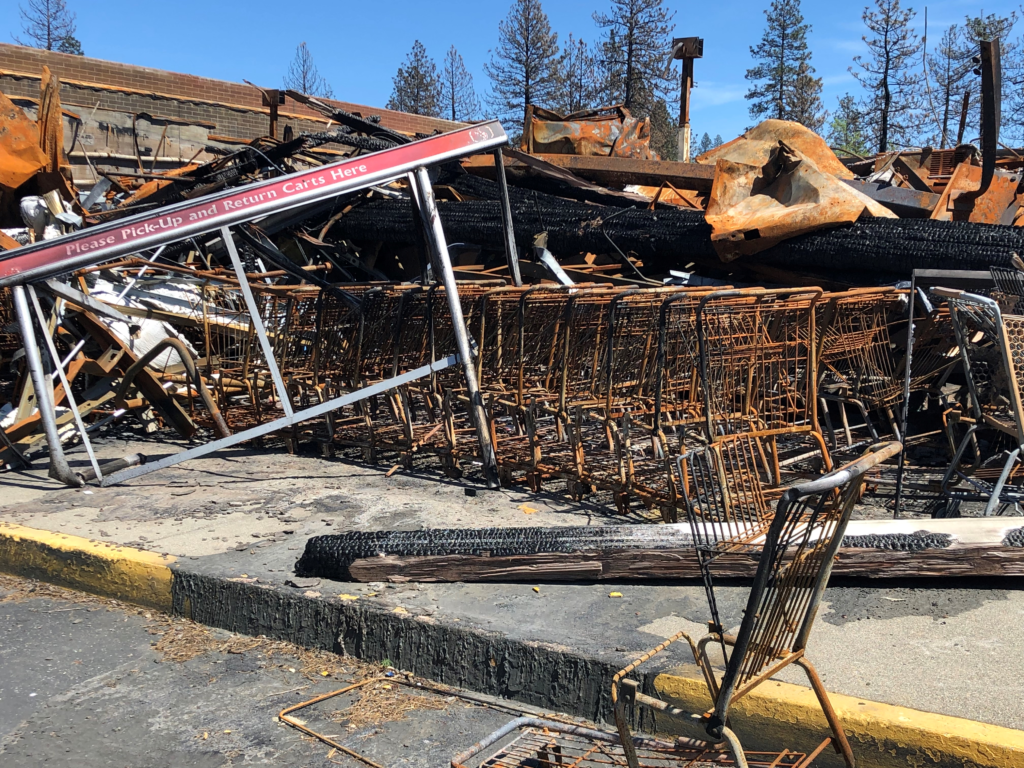Cal Fire officials say power lines and equipment owned by The Pacific Gas and Electric Corp, better known as “PG&E,” are to blame for the deadliest and most destructive wildfire in California history.
The wildfire dubbed “Camp Fire” eliminated 95% of the small town of Paradise, California killing at least 80 people and several others in the surrounding communities. Thousands of homes and businesses were destroyed, leaving the city and other area towns nearly wiped out.
In a month’s long investigation completed by Cal Fire, the agency conducted “a meticulous and thorough investigation” into the cause of the Camp Fire, announcing the findings in a statement.
“Dry vegetation and red flag conditions created a tinder box atmosphere. Conditions like strong winds, low humidity and warm temperatures only promoted this fire and caused incredible spreading rates,” causing the fire to rapidly burn through the area, CalFire said in a press release.

Investigators with the California Department of Forestry and Fire Protection arrived at the same conclusion. “Our investigation found PG&E equipment responsible for the devastating Camp Fire,” officials said in a statement.
PG&E is California’s largest electrical provider, providing power to over 16 million customers. The company was charged with six felonies in recent years after a gas pipeline explosion devastated a neighborhood killing eight people in the Bay Area. A Federal magistrate judge has been recently conducting hearings on PG&E activity after state regulators determined that the company had “violated its probation” by providing misleading information about its gas operations since the incident, according to online records.
In a statement released, the company claims to have not reviewed the investigators’ report yet but said that their prior findings were “only consistent with previous statements made by the company.” The company has struggled to publicly accept responsibility for their allegedly failing equipment since the fire. In a statement released in early April, PG&E said it could be only “probable” that their equipment started the blaze.
“PG&E has not been able to form a conclusion as to whether a second fire ignited as a result of vegetation contact with our electrical distribution lines, as Cal Fire has also determined,” the company said in a press release. “We have and will continue to fully cooperate with all ongoing investigations concerning the Camp Fire,” the company said.
The utility’s provider has been bombarded with legal inquiries recently, responding in court to several state and federal actions concerning their involvement in the fire.

Three of the world’s largest insurance companies are suing PG&E over the millions of dollars in claims received from the Camp Fire.
Insurance conglomerates like State Farm, Allstate Insurance Co and USAA, represent a large staggering blow to the utility provider, which has only acknowledged that an issue occurred on a high-voltage electrical transmitter close to where the fire started Nov. 8. Survivors of the wildfire have also brought legal action against PG&E, adding to the intense scrutiny that the company is under.
The company has been in a state of transition for the past year. Filing for bankruptcy in early January as it came under pressure from billions of dollars in claims tied to deadly wildfires.
In early March, PG&E decided to tap William Johnson as their new CEO. Johnson recently retired as a top executive of the Tennessee Valley Power Authority. The company also appointed 10 new members to its board of directors, after seven promptly stepped down.
At the helm, Johnson will be responsible for leading PG&E through what’s expected to be contentious bankruptcy proceedings as creditors, victims and California officials bring action against the company. This while Johnson wrestles over restructuring a company serving millions in one of the world’s largest economies. Johnson’s predecessor, Geisha Williams, resigned in January before the company filed for bankruptcy. Resigning from the position before facing billions in liability claims tied to the fire.
PG&E noted in its statement that, under Johnson’s leadership, TVA retired more than half of coal generation, cutting the utility’s carbon emissions by about 50 percent over the last decade.